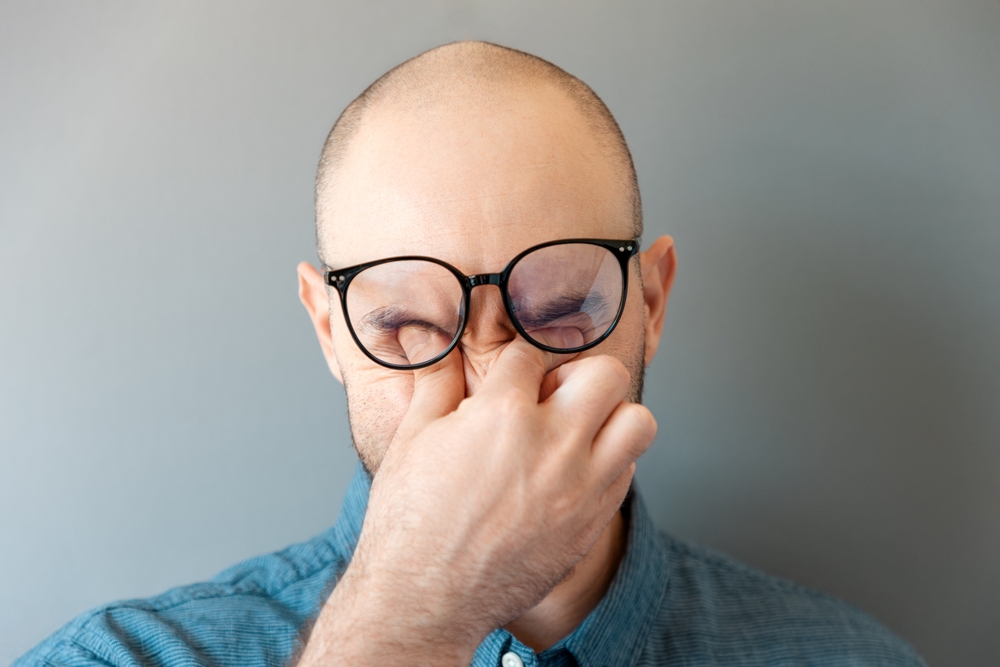
Dry Eye Syndrome (DES) is a common condition that affects millions of people worldwide, causing discomfort, vision problems, and even impacting daily activities. While many may dismiss dry eyes as a minor irritation, it’s essential to understand its causes, as
proper diagnosis and treatment can significantly improve your quality of life.
What Is Dry Eye Syndrome?
Dry Eye Syndrome occurs when your eyes cannot produce adequate tears to provide lubrication, or when the tears evaporate too quickly. Tears are essential for maintaining the health of the ocular surface and ensuring clear vision. Without sufficient tear quality or quantity, the eyes become dry, irritated, and vulnerable to damage.
Types of Dry Eye Syndrome
Dry Eye Syndrome generally falls into two categories:
• Aqueous Tear Deficiency (ATD): This occurs when the lacrimal glands fail to produce enough tears to maintain a healthy eye surface.
• Evaporative Dry Eye (EDE): This type results from rapid evaporation of tears, often caused by issues with the meibomian glands in the eyelids.
Both types can coexist, making it crucial to identify the underlying causes to determine the best course of treatment.
Meibomian Gland Dysfunction (MGD)
One of the leading causes of evaporative dry eye is Meibomian Gland Dysfunction (MGD). The meibomian glands, located in the eyelids, produce the oil layer of tears that prevents evaporation. When these glands are blocked or dysfunctional, the tear film becomes unstable, leading to dryness and irritation.
Additional Causes of Dry Eye Syndrome
In addition to MGD, several other factors can contribute to the development of dry eye:
• Age: Tear production tends to decrease with age, making dry eyes more common in older adults.
• Environmental Factors: Prolonged exposure to wind, smoke, or dry air can lead to increased tear evaporation.
• Digital Eye Strain: Extended use of digital devices reduces blinking, which can affect tear distribution.
• Hormonal Changes: Hormonal shifts during menopause or pregnancy can impact tear production.
• Medications: Certain medications, such as antihistamines, decongestants, and antidepressants, can reduce tear production.
• Autoimmune Conditions: Diseases like Sjögren’s syndrome, lupus, and rheumatoid arthritis can interfere with normal tear production.
The Importance of Proper Diagnosis
Dry Eye Syndrome can have a variety of causes, and a proper diagnosis is critical for effective treatment. At Primary Vision Care, we use advanced diagnostic tools to identify the root cause of your dry eye symptoms. Whether the issue lies with tear production, gland function, or external factors, understanding the specific cause allows us to develop a personalized treatment plan tailored to your needs.
Schedule a Consultation at Primary Vision Care Today
Dry Eye Syndrome may be a common condition, but it’s not something you have to live with. By identifying the causes of your dry eye and seeking appropriate treatment, you can find relief and protect the long-term health of your eyes.
If you’re experiencing dry eye discomfort, contact Primary Vision Care to schedule a comprehensive evaluation and learn about our treatment options. Visit our office in Newark, Waynesville, Lancaster, Mount Vernon, or Wilmington, Ohio. Call (740) 299-1155, (513) 897-2211, (740) 654-9909, (740) 393-6010, or (937) 382-4933 to book an appointment today.







